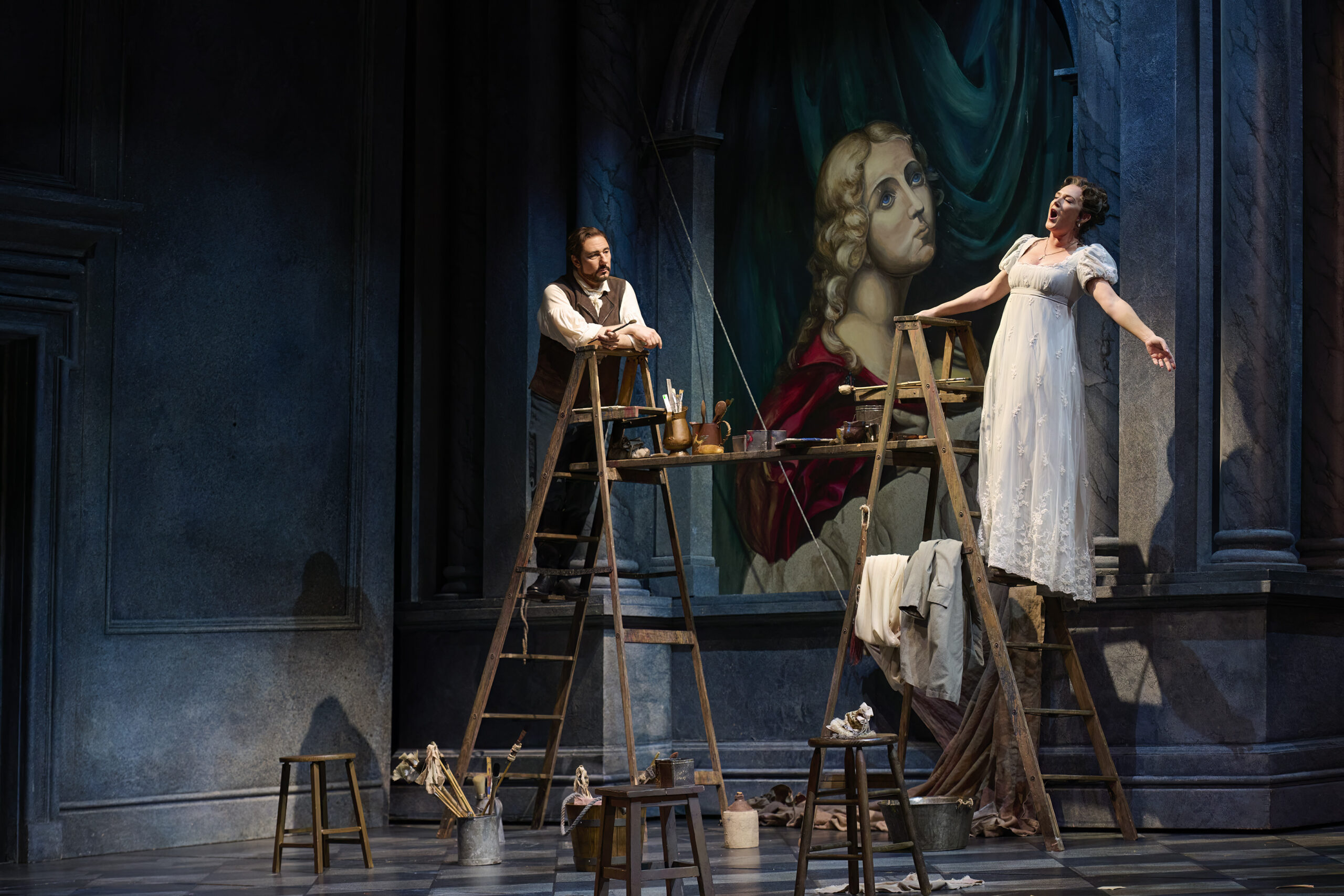Drama, deceit, tragic love, and capacious, sweeping arias — the quintessential clichés that captivate opera audiences permeate one of Puccini’s most celebrated works, Tosca. The Canadian Opera Company’s latest production — which ran for the whole month of May 2023 — not only brings these elements to the forefront, but triumphantly punctuates them with a performance that captures the essence of the classic opera in all its grand melodrama.
Set in Rome against the backdrop of the Napoleonic wars, the renowned opera singer Floria Tosca finds herself in the throes of a treacherous love triangle. Tosca is deeply in love with the artist Cavaradossi, but becomes the object of lustful pursuit by the corrupt and rancorous police chief Scarpia.
Driven by passion and implacable desire, the story spirals into a chasm of deception, abuse of power, and ultimately, tragedy, a potent narrative masterfully underscored by Puccini’s iconic score.
Irish soprano Sinéad Campbell-Wallace stars in the titular role of Floria Tosca and shines as the centerpiece of the Canadian Opera Company’s entire season. Rich and resonant, her vocal prowess is awash in such abundant emotion that it flows effortlessly through the theatre, beguiling audience members as far back as the rear upper ring of the Four Seasons Centre. At times, the purity and grace of Campbell-Wallace’s voice seemed almost too pristine for the tormented Tosca, particularly in the poignant “Vissi d’arte” (“I lived for art”) aria in the second act.
As Tosca laments her cruel fate — being blackmailed by Scarpia into his bed in exchange for Cavaradossi’s life — one can’t help but feel that this almost ethereal perfection contrasts with her haunting predicament. Nonetheless, this very distinction serves to heighten the tragedy of Tosca’s circumstance, underscoring the bitter injustice of her plight.
Contrasting Campbell-Wallace’s captivating portrayal of the tormented heroine is Roland Wood’s chilling embodiment of Scarpia. His performance forms a stark counterpoint to Tosca’s passionate purity, crafting a character imbued with a palpable darkness that both repels and captivates. In the grand finale of Act I, “Te Deum” (“God, We Praise You”), as Scarpia declares his lascivious obsession for Tosca amid a religious procession, Wood’s powerful baritone exudes the character’s penchant for power over genuine affection, underscoring the twisted nature of his attraction.
Under the direction of maestro Giuliano Carella, the Canadian Opera Company’s orchestra masterfully navigates Puccini’s dramatic score. Carella expertly balances the lyrical beauty and dramatic intensity inherent in this operatic masterpiece. From the ominous introduction in the first act to the perceptive accompaniment of Tosca’s lament in “Vissi d’arte,” Carella’s direction ensures the music enhances each moment and never overpowers the libretto. In the third act, the poignant orchestral prelude sets the stage for Cavaradossi’s final aria, “E lucevan le stelle” (“And the stars were shining”). Through Carella’s capable baton, the orchestra becomes an integral character in the narrative, embodying Puccini’s tale of love, lust, and tragedy.
For opera connoisseurs, Puccini’s perennial classic Tosca will be a familiar favorite, rife with a plethora of emotion and beauty to wrest. And for those novices venturing into the vast, dramatic world of opera, the Canadian Opera Company’s faithful production offers a perfect entryway, reverberating with an intensity that keeps you on the edge of your seat.



No comments to display.